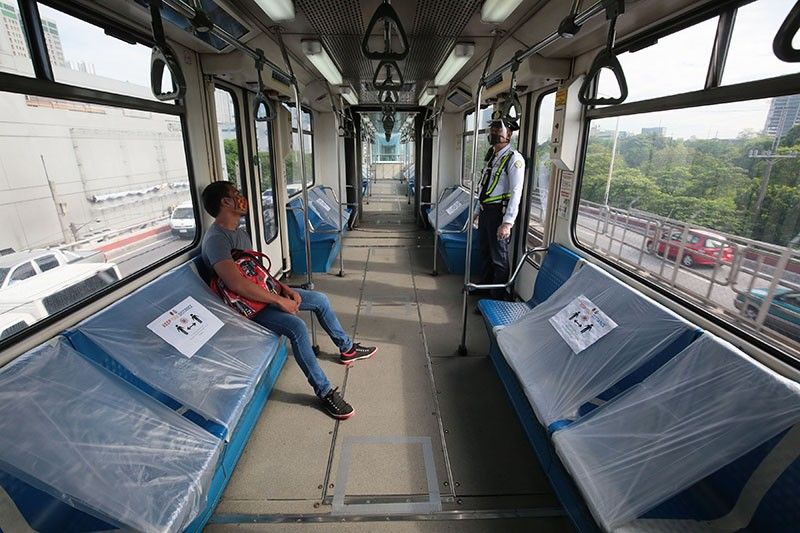Commentary: COVID-19 pandemic an opportunity to change environmental policies

As we reach for the economic reset button in the face of the continuing threat of the COVID-19 pandemic, let’s take a step back and reimagine what the country would and should look like in the new normal.
In a very meaningful sense, the COVID-19 disruption provides an opportunity for us to drastically change many things in the way we live. And these changes might actually be for the better.
This was the central theme of a virtual round table discussion hosted by the Stratbase Albert del Rosario (ADR) Institute last June 25. Government officials, civic sector champions, and leaders of the biggest Philippine companies weighed in on the topic, and unanimously agreed on the virtue of taking the path towards a green economy.
The basic tenets of a green economy are: (1) the efficient and sustainable use of resources; (2) the protection of the natural environment and corresponding reduction of climate risks; and, (3) justice and equity within and between generations.
A green economy puts an appropriate value on nature services beyond market principles, and strives to lessen our consumptive nature without compromising our happiness and well-being. While we may differ in approaches and strategies towards achieving these ideals, the path to a green economy has undoubtedly become clearer than ever.
The COVID-19 experience is compelling everyone to do things differently and to step out of their comfort zones. Many of these changes, not coincidentally, actually help achieve a green economy.
Whether it is a necessary response to COVID-19 or a slow-paced process of enlightenment, there are glimpses of positive change in government policies.
Central to a green economy is environmental protection, and it is gratifying to note that the DENR is stepping up to this challenge. A streamlined management of waste, brought about by the increase in hospital waste, has started with the building of new TSD (treatment, storage and disposal) facilities.
Rebooting the National Greening Program is a good opportunity to increase our forest cover and to provide needed employment in rural communities.
Finally, amendments to the Wildlife Act, that take into account the role of wild animals in the transmission of zoonotic pathogens, should bring broader and far-ranging benefits beyond the protection of human health.
These unexpected positive outcomes arising from an appreciation of the COVID-19 health crisis need to be sustained. As the saying goes, a crisis signifies both danger and opportunity.
The worldwide shutdown of industries, including aviation, has resulted in a significant decrease in greenhouse gas emissions.
With the shutdown of manufacturing and the reduction of vehicles on the road (as a result of work-from-home arrangements and the forced switch to online modes of communication and transaction), there has been a notable improvement in air quality in the metropolis.
Without public transport, the surge in the use of bicycles along major highways and the pedestrianization of local commerce centers have likewise helped improve air quality. Hopefully, policies can be put in place to maintain these positive green effects even as we gradually increase economic activity.
The limited mobility during the lockdown has renewed our focus on the development of sustainable communities. The local sourcing of daily necessities and services, the growing of food through urban farming, and the resort to e-commerce became practical necessities during the pandemic.
With appropriate policies, these could all become part of an enduring transformation of our society and culture. The shutdown of international trade was also a wake-up call for us to develop and be reliant on our own resources, whether these be in food, timber and forest products, or responsibly harnessing mineral resources.
The industry resource persons in the webinar unanimously agreed that the single biggest adjustment they had to make during the ECQ was to convert many of their work processes online. When asked for specifics, they said that work-from-home, Zoom meetings, and online management systems will now be staple processes in their companies even after COVID-19.
They also saw the urgent need to streamline their procedures by reducing waste, recycling and ensuring sustainability in their operations. In like manner, they also saw the necessity to continue corporate social responsibility programs notwithstanding the slowdown in commerce. Finally, they stressed the necessity to invest in longer term sustainability goals.
In the face of the pandemic, local governments and national agencies opened themselves to online transactions virtually overnight. Not only is this more efficient, it also eliminates many avenues for corruption. This is certainly a huge step in the right direction.
So are the proposals for increasing funding for research on healthcare and climate emergency; investments in low carbon infrastructure and transportation alternatives; sustainable travel initiatives; reduction in food wastage and a shift towards a circular economy. All these have become not only desirable but also doable.
When Pearce and others introduced the concept of a green economy in the UK in 1989, they never thought it could be activated by a pandemic. It is definitely time to view this pandemic as a global disruption that could actually lead to an urgent global transformative change. This pandemic has given humanity the opportunity to reimagine life and make it better.
Carlos Primo David is a trustee and convenor of the Global Energy and the Environment Program of think tank Stratbase ADR Institute. He is also a professor of Environmental Science and Geology at the University of the Philippines-Diliman and chairperson of the National Panel of Technical Experts-Climate Change Commission.
- Latest























